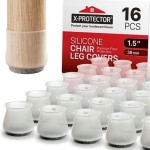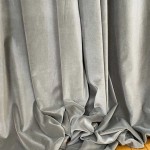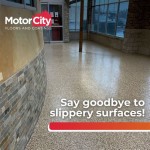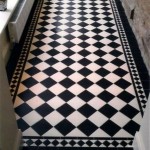Flooring Authority: Navigating Flooring Solutions in Myrtle Beach, SC
Myrtle Beach, South Carolina, a vibrant coastal city known for its beaches, entertainment, and active real estate market, presents unique flooring needs for homeowners and businesses alike. The coastal environment, characterized by humidity, sand, and frequent traffic, demands durable and aesthetically pleasing flooring solutions. Flooring Authority in Myrtle Beach emerges as a key resource, offering a wide range of flooring options and professional installation services to address these specific needs.
This article aims to provide an in-depth look at Flooring Authority's offerings, focusing on the types of flooring materials available, the installation process, factors to consider when selecting flooring, and the importance of professional expertise in ensuring a successful and lasting flooring investment.
Understanding the Flooring Landscape in Myrtle Beach
The Myrtle Beach area experiences a high influx of tourists year-round and boasts a significant number of permanent residents. This translates into diverse flooring requirements, ranging from durable, low-maintenance options for rental properties to elegant and resilient choices for upscale homes and commercial spaces. Saltwater exposure, humidity, and the potential for water damage are critical considerations when selecting flooring materials.
Flooring Authority addresses these challenges by offering a curated selection of materials specifically suited to the Myrtle Beach climate and lifestyle. The company's experience in the local market allows them to advise customers on the best choices based on their individual needs, budget, and aesthetic preferences.
Exploring Flooring Options at Flooring Authority
Flooring Authority provides a comprehensive range of flooring materials, each with its own advantages and disadvantages. A detailed understanding of these options is crucial for making an informed decision.
Hardwood Flooring: Hardwood flooring offers timeless beauty and adds value to any property. It is available in a variety of wood species, each with unique grain patterns, colors, and hardness. Solid hardwood is typically used in areas with stable humidity levels, while engineered hardwood, composed of multiple layers of wood, is more resistant to moisture and warping, making it a suitable option for coastal environments. However, hardwood can be susceptible to scratches and dents, particularly in high-traffic areas or homes with pets. Regular maintenance, including cleaning and refinishing, is necessary to preserve its appearance.
Laminate Flooring: Laminate flooring is a cost-effective alternative to hardwood. It consists of a high-density fiberboard core topped with a photographic layer that mimics the appearance of wood, stone, or tile. Laminate is highly durable, scratch-resistant, and easy to clean, making it an ideal choice for busy households or commercial spaces. It is also relatively moisture-resistant, although not entirely waterproof. Laminate flooring is generally less expensive than hardwood and easier to install, making it a popular choice for budget-conscious consumers. However, it does not offer the same warmth and natural feel as real wood.
Vinyl Flooring: Vinyl flooring is a versatile and practical option known for its water resistance and durability. It is available in various formats, including sheet vinyl, vinyl tiles, and luxury vinyl planks (LVP). Sheet vinyl provides a seamless, waterproof surface, making it ideal for bathrooms and kitchens. Vinyl tiles offer a more modular approach, allowing for customized designs. LVP mimics the appearance of wood or stone and offers excellent durability and water resistance. Vinyl flooring is easy to clean and maintain, making it a popular choice for both residential and commercial applications. The visual quality of vinyl has improved significantly over the years, with high-end LVP offering a convincing resemblance to natural materials.
Tile Flooring: Tile flooring is a durable and water-resistant option suitable for a variety of applications. Ceramic tile, porcelain tile, and natural stone tile are all available. Ceramic tile is a budget-friendly option that is easy to clean and maintain. Porcelain tile is denser and more durable than ceramic tile, making it suitable for high-traffic areas and outdoor use. Natural stone tile, such as granite, marble, and slate, offers a luxurious and unique look. Tile flooring is ideal for bathrooms, kitchens, and entryways. However, it can be cold underfoot and requires professional installation for optimal results. Grout lines can also require regular cleaning to prevent staining and mildew growth.
Carpet Flooring: Carpet flooring provides warmth, comfort, and sound insulation. It is available in a variety of styles, colors, and textures. Carpet is suitable for bedrooms, living rooms, and other areas where comfort is a priority. However, carpet can be susceptible to stains, allergens, and moisture damage. Regular vacuuming and professional cleaning are necessary to maintain its appearance and hygiene. In coastal environments, it is crucial to select moisture-resistant carpet fibers and padding to prevent mold and mildew growth.
The Flooring Installation Process
Proper installation is crucial for ensuring the longevity and performance of any flooring material. Flooring Authority employs experienced and certified installers who follow industry best practices to ensure a flawless finish. The installation process typically involves several key steps:
Subfloor Preparation: The subfloor is the foundation upon which the flooring is installed. A properly prepared subfloor is essential for ensuring a level and stable surface. This may involve leveling uneven areas, repairing cracks or damage, and cleaning the surface to remove debris and contaminants. The type of subfloor preparation required will depend on the existing flooring and the new flooring material being installed.
Material Acclimation: Some flooring materials, such as hardwood and laminate, require acclimation to the room's temperature and humidity before installation. This involves storing the flooring materials in the room for several days to allow them to adjust to the environment. Acclimation helps to prevent warping, shrinking, or expansion after installation.
Installation Techniques: The specific installation techniques used will vary depending on the flooring material. Hardwood flooring can be nailed, glued, or floated. Laminate flooring is typically installed using a click-lock system. Vinyl flooring can be glued, loose-laid, or click-locked. Tile flooring requires the application of mortar and grout. Proper installation techniques are essential for ensuring a secure and long-lasting bond between the flooring and the subfloor.
Finishing Touches: After the flooring has been installed, finishing touches are applied to complete the project. This may involve installing baseboards, trim, and transitions to create a seamless and professional look. The installers will also clean the area and remove any debris.
Factors to Consider When Selecting Flooring
Choosing the right flooring material involves considering several factors, including budget, aesthetics, durability, maintenance, and lifestyle. Here are some key considerations:
Budget: Flooring materials vary significantly in price. It is essential to establish a budget and choose materials that fit within your financial constraints. Consider not only the cost of the materials but also the cost of installation, which can vary depending on the complexity of the project.
Aesthetics: Flooring plays a significant role in the overall look and feel of a room. Choose materials that complement your existing décor and reflect your personal style. Consider the color, texture, and pattern of the flooring and how it will coordinate with your furniture, walls, and other design elements.
Durability: The durability of the flooring material is crucial, especially in high-traffic areas or homes with children and pets. Choose materials that are resistant to scratches, dents, and stains. Consider the level of foot traffic the area will experience and select materials accordingly.
Maintenance: Different flooring materials require different levels of maintenance. Some materials, such as vinyl and tile, are relatively low-maintenance and easy to clean. Others, such as hardwood and carpet, require more frequent cleaning and may need to be professionally maintained. Consider your lifestyle and how much time you are willing to devote to flooring maintenance.
Lifestyle: Your lifestyle and the needs of your household should also influence your flooring choices. If you have pets, choose durable, stain-resistant materials that are easy to clean. If you have young children, consider soft and comfortable materials that are safe for them to play on. If you have allergies, choose hypoallergenic materials that are resistant to dust mites and allergens.
The Value of Professional Expertise
While DIY flooring installation may seem like a cost-effective option, it can often lead to problems down the road. Improper installation can result in uneven surfaces, gaps, squeaks, and other issues that can compromise the appearance and performance of the flooring. Hiring a professional flooring installer, such as those employed by Flooring Authority, offers several key advantages:
Expertise and Experience: Professional installers have the knowledge, skills, and experience necessary to install flooring correctly and efficiently. They are familiar with the nuances of different flooring materials and can address any challenges that may arise during the installation process.
Proper Tools and Equipment: Professional installers have access to specialized tools and equipment that are essential for achieving a flawless finish. These tools can include power saws, leveling tools, moisture meters, and other specialized equipment.
Warranty Protection: Flooring Authority typically offers a warranty on its installation services. This provides peace of mind knowing that any issues that arise due to faulty installation will be addressed promptly and professionally.
Time Savings: Flooring installation can be a time-consuming and labor-intensive process. Hiring a professional installer can save you valuable time and effort, allowing you to focus on other tasks.
Improved Results: Ultimately, hiring a professional installer will result in a better-quality flooring installation that will last longer and look more appealing. The investment in professional installation is often well worth it in the long run.
Flooring Authority in Myrtle Beach provides a valuable service to the community by offering a wide range of flooring options and professional installation services. By understanding the different types of flooring materials available, the installation process, and the factors to consider when selecting flooring, homeowners and businesses can make informed decisions that will enhance the beauty, durability, and value of their properties.

Floor Authority Updated August 2025 48 Photos 3550 Northgate Dr Myrtle Beach South Carolina Flooring Phone Number Yelp

Floor Authority Mb

Floor Authority Reviews Photos Phone Number Updated August 2025 Flooring Services In Myrtle Beach City Horry County Wheree

Floor Authority Mb

Floor Authority Mb

Floor Authority Reviews Photos Phone Number Updated July 2025 Interior Design Services In Forestbrook Horry County Sc Wheree

Floor Authority Updated August 2025 48 Photos 3550 Northgate Dr Myrtle Beach South Carolina Flooring Phone Number Yelp

Floor Authority Mb

Floor Authority Myrtle Beach Sc Nextdoor
Floor Authority 3550 Northgate Dr Myrtle Beach Sc 29588 Us Mapquest







